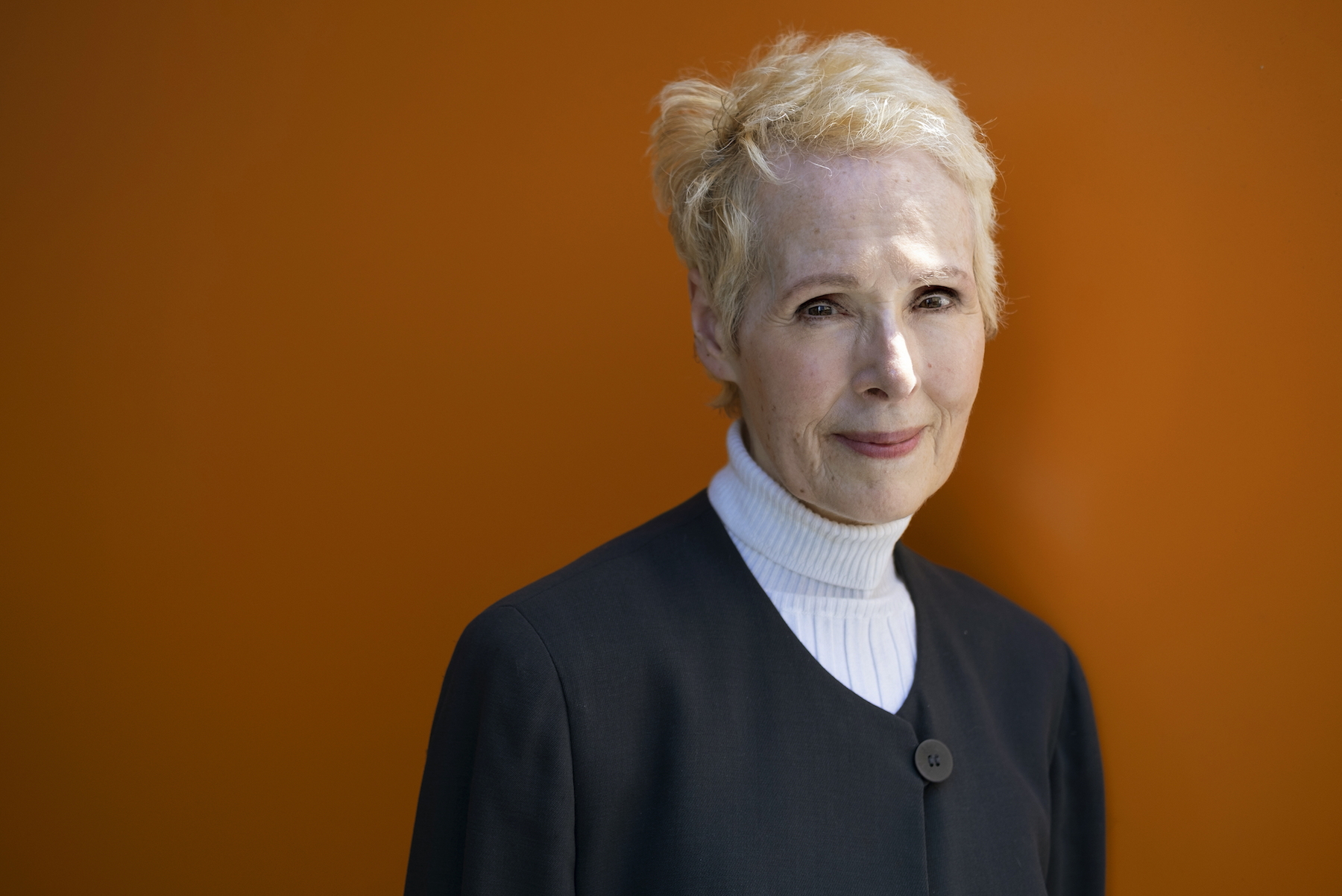In a world where truth often feels like a rare commodity, the recent interview between Jean Carroll and Anderson Cooper has captured the attention of millions. This profound conversation sheds light on the complex issues surrounding sexual assault, power dynamics, and the resilience of survivors. Jean Carroll, a prominent figure in the public eye, bravely shares her experiences, offering insights that resonate deeply with many. As the interview unfolds, viewers are compelled to reflect on the societal implications of Carroll's revelations and the broader conversation about accountability and justice.
The interview serves as a crucial platform for Carroll, who has long been a symbol of courage in speaking out against powerful figures. Through her candid dialogue with Cooper, she not only recounts her personal journey but also emphasizes the importance of supporting survivors and advocating for change. This conversation is not merely a recounting of events; it is a powerful call to action that challenges viewers to confront uncomfortable truths and engage in meaningful discussions about consent, belief, and the treatment of survivors in society.
As the audience tunes in, they are invited to explore the complexities of Carroll's narrative—the emotional turmoil, the societal backlash, and the relentless pursuit of justice. Anderson Cooper's empathetic approach allows for a nuanced exploration of these themes, inviting viewers to join in a necessary dialogue about the impact of sexual violence and the importance of believing survivors. The Jean Carroll interview with Anderson Cooper is not just an interview; it is a vital conversation that seeks to inspire change and foster understanding.
Who is Jean Carroll?
Jean Carroll is an accomplished author and journalist known for her fearless stance on issues surrounding sexual violence and women's rights. Her visibility rose significantly when she publicly accused a former U.S. president of sexual assault, sparking national conversations about the treatment of survivors and the pervasive culture of silence surrounding these issues.
What are the Personal Details and Bio Data of Jean Carroll?
| Detail | Information |
|---|---|
| Name | Jean E. Carroll |
| Born | December 12, 1943 |
| Occupation | Author, Journalist |
| Notable Works | What Do We Need Men For? A Modest Proposal |
| Education | University of Wisconsin-Madison |
| Residence | New York City, USA |
What did Jean Carroll discuss during the interview with Anderson Cooper?
During the Jean Carroll interview with Anderson Cooper, the topic ranged from her personal experiences to broader societal issues surrounding sexual violence. Carroll shared her harrowing story, detailing the events that led to her decision to come forward. She spoke candidly about the emotional toll of her experience and the challenges she faced in the aftermath of her allegations.
How did Anderson Cooper approach the conversation?
Anderson Cooper's approach to the interview was marked by sensitivity and respect. He allowed Carroll to share her narrative without interruption, demonstrating the importance of listening to survivors. Cooper's questions were thoughtful, aimed at not only understanding Carroll's experience but also highlighting the systemic issues that contribute to the silence surrounding sexual violence.
What were the key takeaways from the interview?
- The Importance of Believing Survivors: Carroll emphasized that believing survivors is crucial for societal change and healing.
- Breaking the Silence: The interview highlighted the need for open discussions about sexual assault and the barriers that prevent survivors from coming forward.
- Empowerment through Sharing Stories: Carroll's courage in sharing her story serves as an inspiration for others to speak out.
- The Role of Media: Carroll discussed how media portrayal impacts public perception and the experiences of survivors.
What impact did the interview have on public perception?
The Jean Carroll interview with Anderson Cooper significantly influenced public perception regarding sexual assault. It reignited conversations about accountability, the treatment of women in society, and the importance of believing survivors. Following the interview, many individuals expressed their support for Carroll, underscoring the courage it takes to speak out against powerful figures.
How did social media respond to the interview?
Social media erupted with discussions and support for Jean Carroll following the interview. Many users shared their own experiences, echoing Carroll's sentiments and reinforcing the importance of solidarity among survivors. The hashtag #BelieveSurvivors trended on various platforms, showcasing a collective movement towards acknowledging and supporting those who have experienced sexual violence.
What are the implications for future conversations about sexual violence?
The implications of the Jean Carroll interview with Anderson Cooper extend beyond the immediate discussion. It has set the stage for future conversations about sexual violence, consent, and the societal structures that protect perpetrators. This interview serves as a reminder that dialogue is necessary for change, and it encourages individuals to continue advocating for survivors' rights.
Conclusion: What can we learn from Jean Carroll's story?
Jean Carroll's interview with Anderson Cooper is not just a recount of her personal experiences; it is a rallying cry for change. It challenges us to confront uncomfortable truths and encourages a society that believes and supports survivors. As we reflect on Carroll's powerful words, we are reminded of the resilience of the human spirit and the importance of standing up for justice. In a world where silence often prevails, Carroll's story is a beacon of hope that inspires us to continue the fight for accountability and understanding.
You Might Also Like
Unveiling The Dimensions Of A Legend: Michael Vick Height And WeightP Diddy And Obama: A Unique Friendship
Unveiling The Journey Of Lathika Jha: A Trailblazer In Her Own Right
Unraveling The Background Of Greg Newsome II: A Look At His Parents
Unveiling The Enigma Of Selin. Id: A Journey Through Identity
Article Recommendations

